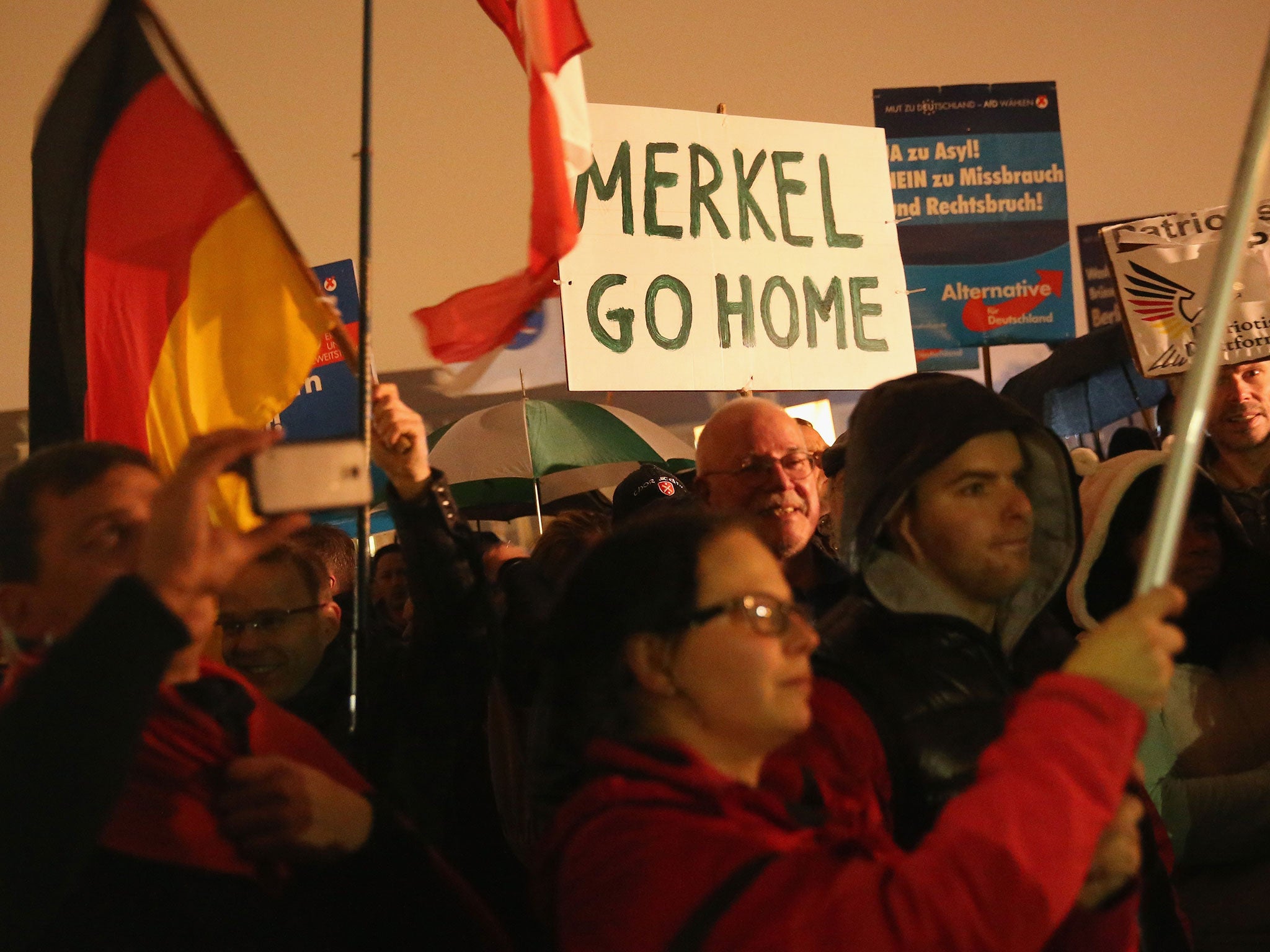La popularidad de Macron sigue en caída libre
Una nueva encuesta sitúa su aprobación en 40%, 14 puntos menos que hace un mes
33
SILVIA AYUSO
París 27 AGO 2017 - 15:29 CEST

El presidente francés, Emmanuel Macron, en Bulgaria el 25 de agosto STOYAN NENOV REUTERS
La vuelta de sus cortas vacaciones no le ha sentado tan bien como quisiera al presidente francés, Emmanuel Macron. Justo al comienzo de una semana importante para el Ejecutivo galo, en la que se deberían conocer detalles de la reforma laboral que ya ha provocado amenazas de protestas y se definirá la política exterior francesa, una nueva encuesta confirma lo que los sondeos llevan advirtiendo desde el comienzo de verano: que la popularidad de Macron está en caída libre y ya son más los franceses insatisfechos que los contentos con su actuación en el Elíseo.
La recuperación económica de Francia da aire a Macron
La última medición, realizada por el instituto Ifop para el Journal du Dimanche, cifra en un 40% el número de franceses satisfechos con la actuación de Macron. Son 14 puntos menos que en julio, cuando ya saltaron las alarmas por el desplome de popularidad del nuevo presidente. En junio, gozaba aún de un 64% de aprobación, pero desde entonces la caída ha sido constante, 10 puntos en julio y, en agosto, 14 más. Según el dominical, es una caída sin precedentes. Hasta ahora, el desplome más abrupto había sido el de Jacques Chirac entre mayo y agosto de 1995, cuando cayó 20 puntos en las encuestas.
"Descontento manifiesto"
“El aumento de los insatisfechos (en total, un 57% de los consultados) es manifiesto”, afirmó al rotativo el director general adjunto de Ifop, Frédéric Dabi. Otro factor preocupante para el Gobierno: que esta insatisfacción se da a “niveles impresionantes en todas las categorías de la población”. Macron pierde puntos entre jóvenes y mayores, pero también tanto entre funcionarios y profesionales superiores como entre los obreros. Y el descontento se registra tanto entre los simpatizantes de izquierdas como entre los de derechas, aunque sea por motivos diferentes (las medidas sociales, para la izquierda, su posición ante la migración, entre los conservadores).
La mala nota afecta también a su jefe de Gobierno, el primer ministro Édouard Philippe, que goza de un 47% de aprobación, frente a un 45% de descontento.
El portavoz del Gobierno, Christophe Castaner, reconoció que el Ejecutivo se está topando con algunas “dificultades”, pero subrayó que “no se pueden mirar solo los sondeos para gobernar”. “Estamos aquí para transformar el país, nuestro país necesita que asumamos riesgos y los estamos tomando”, declaró este domingo en la cadena BFM TV.
Una entrada complicada
La caída de popularidad corona una semana de regreso a sus actividades complicada para Macron. La noticia de que en solo tres meses se ha gastado 26.000 euros en maquillaje ha sentado muy mal en una población que espera ansiosa saber cómo les afectarán los recortes previstos en los próximos presupuestos. Tampoco ha caído bien su afirmación de que los franceses “detestan las reformas” que hizo durante su estancia en Rumanía. Mientras, ha provocado una pequeña crisis con Polonia, que criticó la “arrogancia” y “falta de experiencia” del presidente francés en el marco de las denuncias que este ha realizado esta semana sobre los trabajadores desplazados —muchos de ellos polacos— y sus ventajas fiscales al poder cotizar en sus países de origen que, según Francia, provoca una competencia desleal en los empleados nacionales.
La semana que ahora comienza no se prevé más sencilla para Macron. El Gobierno se ha comprometido a presentar, hasta el 31 de agosto, el contenido de la reforma laboral que el Ejecutivo aprobará por directivas y de la que se conocen pocos detalles aún. Jean-Luc Mélenchon, líder de Francia Insumisa y una de las voces actualmente más fuertes de la oposición —el 59% de los sondeados consideran que es la mejor voz de la oposición ante Macron, según el Journal du Dimanche— ha anunciado la celebración, el 23 de septiembre, de una jornada de movilización contra lo que considera un “golpe de Estado social”. Varios sindicatos prevén también protestas en septiembre, como comienzo de un otoño caliente. La reforma laboral ha hecho salir de su silencio incluso al expresidente socialista François Hollande, que esta semana llamó a su sucesor a “no pedirles a los franceses sacrificios que no sean útiles”.
El martes, el presidente fijará los grandes ejes de su política exterior, un día después de celebrar en París una minicumbre sobre inmigración en la que participarán los jefes de Gobierno de España, Mariano Rajoy; Alemania, Angela Merkel, e Italia, Paolo Gentiloni.
https://elpais.com/internacional/2017/08/27/actualidad/1503838501_568994.html
Pues nada, a ver si aguanta los cinco años escasos que le queda para nuevas elecciones en Francia, a no ser que se adelanten.
Una nueva encuesta sitúa su aprobación en 40%, 14 puntos menos que hace un mes
33
SILVIA AYUSO
París 27 AGO 2017 - 15:29 CEST

El presidente francés, Emmanuel Macron, en Bulgaria el 25 de agosto STOYAN NENOV REUTERS
La vuelta de sus cortas vacaciones no le ha sentado tan bien como quisiera al presidente francés, Emmanuel Macron. Justo al comienzo de una semana importante para el Ejecutivo galo, en la que se deberían conocer detalles de la reforma laboral que ya ha provocado amenazas de protestas y se definirá la política exterior francesa, una nueva encuesta confirma lo que los sondeos llevan advirtiendo desde el comienzo de verano: que la popularidad de Macron está en caída libre y ya son más los franceses insatisfechos que los contentos con su actuación en el Elíseo.
La recuperación económica de Francia da aire a Macron
La última medición, realizada por el instituto Ifop para el Journal du Dimanche, cifra en un 40% el número de franceses satisfechos con la actuación de Macron. Son 14 puntos menos que en julio, cuando ya saltaron las alarmas por el desplome de popularidad del nuevo presidente. En junio, gozaba aún de un 64% de aprobación, pero desde entonces la caída ha sido constante, 10 puntos en julio y, en agosto, 14 más. Según el dominical, es una caída sin precedentes. Hasta ahora, el desplome más abrupto había sido el de Jacques Chirac entre mayo y agosto de 1995, cuando cayó 20 puntos en las encuestas.
"Descontento manifiesto"
“El aumento de los insatisfechos (en total, un 57% de los consultados) es manifiesto”, afirmó al rotativo el director general adjunto de Ifop, Frédéric Dabi. Otro factor preocupante para el Gobierno: que esta insatisfacción se da a “niveles impresionantes en todas las categorías de la población”. Macron pierde puntos entre jóvenes y mayores, pero también tanto entre funcionarios y profesionales superiores como entre los obreros. Y el descontento se registra tanto entre los simpatizantes de izquierdas como entre los de derechas, aunque sea por motivos diferentes (las medidas sociales, para la izquierda, su posición ante la migración, entre los conservadores).
La mala nota afecta también a su jefe de Gobierno, el primer ministro Édouard Philippe, que goza de un 47% de aprobación, frente a un 45% de descontento.
El portavoz del Gobierno, Christophe Castaner, reconoció que el Ejecutivo se está topando con algunas “dificultades”, pero subrayó que “no se pueden mirar solo los sondeos para gobernar”. “Estamos aquí para transformar el país, nuestro país necesita que asumamos riesgos y los estamos tomando”, declaró este domingo en la cadena BFM TV.
Una entrada complicada
La caída de popularidad corona una semana de regreso a sus actividades complicada para Macron. La noticia de que en solo tres meses se ha gastado 26.000 euros en maquillaje ha sentado muy mal en una población que espera ansiosa saber cómo les afectarán los recortes previstos en los próximos presupuestos. Tampoco ha caído bien su afirmación de que los franceses “detestan las reformas” que hizo durante su estancia en Rumanía. Mientras, ha provocado una pequeña crisis con Polonia, que criticó la “arrogancia” y “falta de experiencia” del presidente francés en el marco de las denuncias que este ha realizado esta semana sobre los trabajadores desplazados —muchos de ellos polacos— y sus ventajas fiscales al poder cotizar en sus países de origen que, según Francia, provoca una competencia desleal en los empleados nacionales.
La semana que ahora comienza no se prevé más sencilla para Macron. El Gobierno se ha comprometido a presentar, hasta el 31 de agosto, el contenido de la reforma laboral que el Ejecutivo aprobará por directivas y de la que se conocen pocos detalles aún. Jean-Luc Mélenchon, líder de Francia Insumisa y una de las voces actualmente más fuertes de la oposición —el 59% de los sondeados consideran que es la mejor voz de la oposición ante Macron, según el Journal du Dimanche— ha anunciado la celebración, el 23 de septiembre, de una jornada de movilización contra lo que considera un “golpe de Estado social”. Varios sindicatos prevén también protestas en septiembre, como comienzo de un otoño caliente. La reforma laboral ha hecho salir de su silencio incluso al expresidente socialista François Hollande, que esta semana llamó a su sucesor a “no pedirles a los franceses sacrificios que no sean útiles”.
El martes, el presidente fijará los grandes ejes de su política exterior, un día después de celebrar en París una minicumbre sobre inmigración en la que participarán los jefes de Gobierno de España, Mariano Rajoy; Alemania, Angela Merkel, e Italia, Paolo Gentiloni.
https://elpais.com/internacional/2017/08/27/actualidad/1503838501_568994.html
Pues nada, a ver si aguanta los cinco años escasos que le queda para nuevas elecciones en Francia, a no ser que se adelanten.
















 6
6